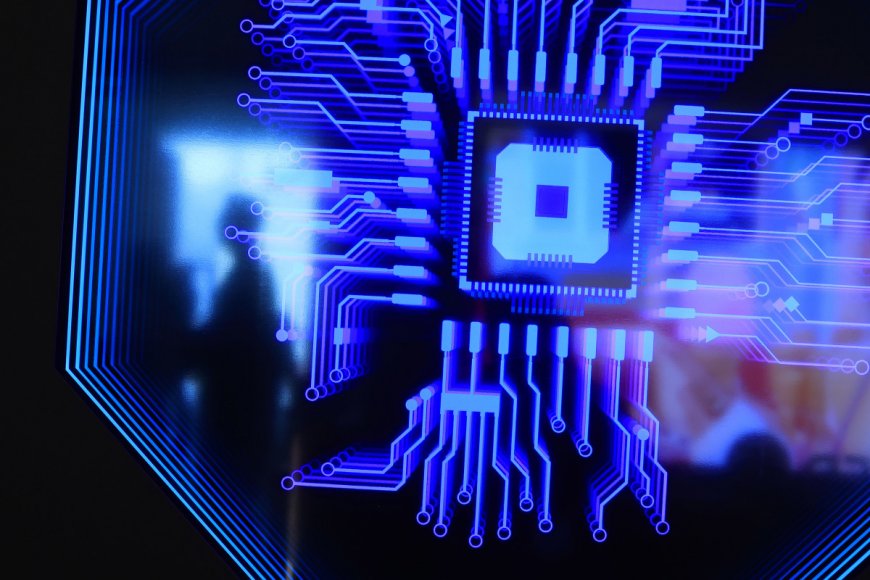With identity fraud spiking, AU10TIX is working to change the way the industry works
Fraudsters are "way more advanced in using AI" than those defending against them.

One of the greatest concerns around artificial intelligence has nothing to do with existential risk. Rather, it involves the many ways bad actors can leverage the technology to exacerbate a variety of crimes, namely online fraud and phishing.
A March report from Europol found that the criminal attraction to a tool like ChatGPT involves speed and scale.
Related: Even regulation won't stop data scraping from AI companies, Quivr founder warns
"With the help of LLMs, these types of phishing and online fraud can be created faster, much more authentically and at significantly increased scale," the report reads.
While some have touted the need to use AI to defend against AI, a sort of fight-fire-with-fire approach, AU10TIX, a veteran in the identity verification business, is using AI to change how fraud detection works. Even so, the company is racing to just keep pace with these bad actors and criminal organizations.
The firm, which got its start in airport security and border control, works with a variety of big-name corporations, including Google (GOOGL) - Get Free Report, Uber (UBER) - Get Free Report and Coinbase (COIN) - Get Free Report.
"Fraudsters are way more advanced in using AI than those defending against them" Ofer Friedman, AU10TIX's chief business development officer said in an interview with TheStreet. "The way fraud can be detected using AI is very dependent on how smart the people are who are using it."
The professional criminal organizations who orchestrate these card frauds have used AI to overcome a common method of ID verification: taking a selfie to prove an ID belongs to the person holding it. Now, bad actors are using AI to convert fraudulent ID photos into live selfies, quickly creating hundreds of near-identical, technically accurate "perfect fakes."
These synthetic IDs, which often go unnoticed, and therefore, undetected, blend a mixture of real (stolen) and fake information, creating a compelling manipulation.
A new approach to fraud detection
The fakes are so good that it's almost impossible to discover the fraud unless these batches of IDs are compared to one another, at which point experts can discover specific, nuanced similarities — such as a repeated reflection in the ID photo — which indicates that an ID is part of a fraudulent batch.
Where the fraud detection industry normally operates on a case-by-case basis for detection, AU10TIX is using its software to catch and prevent fraud before it happens.
More Business of AI:
- To These US Veterans, AI Is a Tool That Could Help Prevent Mass Shootings
- One Tech Startup Found the Key To Safe AI Adoption
- This Tech Startup Is Powering 'the Core Infrastructure' of AI Models
"We implemented a two-layer defense," Friedman said.
Rather than solely place its machine learning-powered detection software at the gate to protect clients from external fraud attacks, AU10TIX incorporated a second layer of defense designed to file through the existing system and flush out fraud from inside a given company.
The approach is designed to catch coordinated attacks, as well as individual ones, importantly leveraging AI to detect fraud that is practically undetectable.
And it does all this without accessing peoples' PII (personally identifiable information).
"For the first time, there is a two-way detection of sophisticated professional identity fraud that looks at those coming in and those who already became Trojan or dormant or simply opened fake accounts," Friedman said. "Backward as well as forward. It does not exist anywhere else."
The company created this new method of ID fraud detection after it began coming across steadily increasing instances of potential fraud that its best experts would spend hours on, trying to detect minute flaws and red flags.
"What would the AI let us do that will basically bypass the need to look for undetectable fraud? So it's kind of writing the book again," Friedman said, adding that looking at the case-by-case level is still an important component of their fraud detection efforts.
The big disadvantage AU10TIX and its peers have, Friedman said, is that these fraud defenders have to comply with privacy laws, which limits what they can do with the technology. Criminal organizations don't have this problem.
"It's our role to read their mind," he said. "The availability of free or very cheap AI tools is such that it doesn't make sense to do this arms race of case-level detection because eventually, there is a limit to it."
In the past year, AU10TIX's software has detected more than one million distinct attacks around the world.
If you work in artificial intelligence, contact Ian by email [email protected] or Signal 732-804-1223.
Get investment guidance from trusted portfolio managers without the management fees. Sign up for Action Alerts PLUS now.
What's Your Reaction?



























































